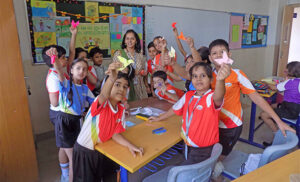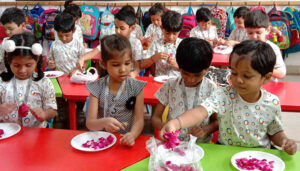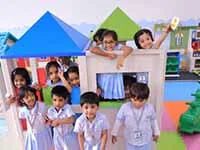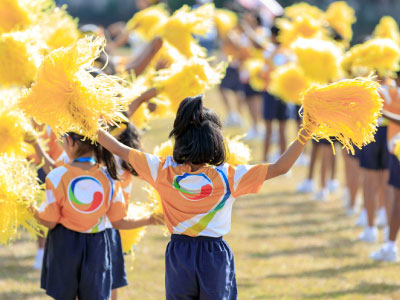The distinction between Montessori and kindergarten learning methods has never been clear. Parents frequently struggle while deciding between the two. Why therefore, should you not be concerned? It is, after all, a concern for the future of your child. It has been decided to provide you with a thorough explanation for precisely this reason. On the two types of education and learning styles so that your concerns can be permanently put to rest!
Keys differences between the Montessori and Kindergarten education
Key differences
To clear up any confusion, you should know that most schools employ Kindergarten as a teaching strategy. On the other side, Montessori is an educational approach to instruction. Kindergarten provides education; Montessori is an approach to education.
While Montessori is a method of teaching that may or may not be implemented in the school, kindergarten is a component of education and is present in the majority of institutions.
The educational system
In kindergarten, the educational system is more regimented, the job of the instructor is predetermined, and all students are taught using the same methodology.
In contrast, the Montessori method employs a flexible/unstructured approach where each student is free to express themselves and the teacher adjusts her or his teaching methods to the needs of the students.
Student age
For kids between the ages of three and five, the kindergarten method of learning serves as the foundation for their primary education.
Up until the age of six, children are primarily taught in a Montessori environment; after that, it is optional. Studies have shown that even teenagers benefit from the Montessori method.
The teachers’ role
The teacher is the central figure in an educational system modelled after Kindergarten. They are in charge of selecting the instructional strategies and means of knowledge transfer. All at once, they choose what, how, and when students acquire a subject or a skill.
On the other hand, because they do not control how or what the kids learn, Montessori teachers have a very constrained role. They merely offer a subject to a learner and let them investigate the different solutions to that specific issue or topic. Children learn through their own experiences while being guided by teachers in this setting.
Classroom environment
Traditional kindergarten courses are created with the teacher as the main consideration. In contrast, the Montessori classrooms are created with the child as the primary consideration based on observations of their behaviour. It enables individualised and targeted learning.
Self esteem
The Montessori method of education promotes the importance of self-esteem and recognises that it results from a sense of self-pride as a result of a child’s accomplishments. Kindergarteners comprehend that external evaluation and judgement are the source of self-esteem.
Learning activities
The grading system and success on standardised tests are important concepts in kindergarten education. The Montessori method of education, on the other hand, aims to pique a child’s curiosity and inspire their natural desire to learn.
Pros and cons of Montessori and kindergarten education
Pros of Montessori education
1. It offers practical instruction
Some people are accustomed to Montessori classrooms because of their beautiful appeal. The architecture of the classroom in this example emphasises the importance of ample space and sunlight. All of this is done to give the small kids a lovely and welcoming ambience so they can guide their own learning using the precise learning provisions.
2. Increased interaction with others
Children are fascinated by what other children accomplish. It is offered through Montessori education by mixing children of diverse ages in one place. The majority of Montessori classrooms are mixed-age and created to encourage friendships amongst students. Children in mixed-age groups are given the freedom to talk, exchange knowledge, and learn important life lessons like inclusion and acceptance.
Cons of Montessori education
1. The cost is high
It can be quite difficult for Montessori schools to maintain low prices. It is expensive to give young children a wide range of durable, high-quality educational equipment, as well as in-depth instruction in their use.
2. There are insufficient opportunities
There is no denying the differences in behaviour between traditional schools and Montessori settings. But what it delivers in terms of engagement is far more important. The learning environment used in the classroom allows kids to interact more freely than they would in a normal classroom. Interaction, however, is far less planned and spontaneous.
Pros of Kindergarten education
1. Getting kids used to working with other kids in a supportive setting.
2. Giving children the chance to engage with and become used to being around adults who are not regular members of their household.
3. Encourages children to push themselves to complete daily tasks.
4. Makes children aware of others from varied cultures and social situations.
5. Provides them with the chance to learn new things as part of a framework for learning.
Cons of Kindergarten education
1. Some youngsters who are sent to kindergarten have unidentified learning difficulties. For everyone concerned, especially the student who is attempting to blend in and adapt to the new setting, this can be difficult.
2. Some children are not emotionally prepared to be away from their parents for such a long time.
3. Paying for kindergarten can be a substantial financial load that you might not be ready for or able to comfortably shoulder.
The role of the parents
The teacher’s and the parents’ roles are interchangeable in the kindergarten educational model. Similar approaches must be used by the parents to educate their children at home. In all locations, the learning standard is the same, and parents are required to use the same methods.
Parental involvement in the Montessori method of education is low. Even at home, they must let the kids experiment, express their creativity, and explore.
Active vs passive learning
Due to a predetermined and controlled curriculum, learning in the kindergarten setting is more passive and orated for the kids. Children must memorise this and complete tasks or assessments as a result.
With a more “hands-on” emphasis on practical experiences, the Montessori method encourages students to learn by doing.
Learning pace at Montessori and Kindergarten
The child is anticipated to study at a similar rate as the other students in a Kindergarten setting or they are deemed to be behind or have lagging skills.
The children are given the freedom to master each skill at their own pace and in their own time in a Montessori-style environment. As a result, with the Montessori system of learning, there is less pressure to perform.
Curriculum
Children can study Practical Life, Sensorial, Mathematics, Language, and Culture as part of the Montessori Curriculum. A group of Montessori items that teach a specific major knowledge topic or ability make up each learning area.
In the Kindergarten education, the curriculum consists of practising basic concepts of mathematics, shapes, time, reading and writing.
Read Also- 20 reasons why education is important
Conclusion
The two learning methods differ in a number of ways, and each has advantages and disadvantages of its own. We have to choose the one that is best for the child as parents. To choose one of them, you must thoroughly assess your child and his or her needs. This is so because every child is unique. Because children learn and react in different ways, one is ideal for kindergarten, while the other would be great in a Montessori setting.
Frequently Asked Questions
1. Is Montessori Better Than Kindergarten?
The Montessori approach to education is created to appeal to the child’s inherent search for knowledge and the will to learn that makes youngsters love learning. The kindergarten approach to education places a strong emphasis on performance on standardised tests and grading systems. Both the education styles are the best. Choice is yours.
2. What is The Best Age For Montessori And Kindergarten School?
For kids between the ages of three and five, the kindergarten method of learning serves as the foundation for their primary education. Up until the age of six, children are primarily taught in a Montessori environment; after that, it is optional.
3. Should I Keep My Child In Montessori Or Kindergarten First?
Either way, it is your choice. Both the education styles will help your child with cognitive development.
4. Is 5 Years Old Too Late To Start Montessori?
No, you can enrol your child into Montessori schools between the age of 2.5 to 6 years.
5. Does Montessori Teach Reading Or Writing First?
Kids in Montessori learn to write first.
6. Should I Start My Child in Kindergarten At 5 Or 6?
5 years of age will be more appropriate.
7. Do Montessori Schools Teach Math?
Yes. They teach place value, numeration, addition, subtraction, multiplication, division, etc.
8. How Do I Know If My Child Is Ready For Kindergarten?
When your child turns 4-5 years of age, he or she is ready for the kindergarten.





































